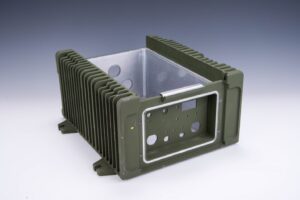It’s important you pick the right manufacturer for your design. Can they make it effectively and efficiently? Can I rely on them?
A strong supplier will…
Here are 6 questions to ask when choosing a casting supplier.
Not every manufacturing process will be a good fit for your product. The best manufacturing method will readily meet design requirements, tolerances, and order quantities.
A good supplier won’t force a project that’s better suited for another manufacturing method. An honest supplier should be able to recommend manufacturing methods that best fit your custom project, even if it means losing your business.
For example, if you come to us with a small and thin project that will be most efficiently manufactured by machining, we will not force it into a casting.
The goal of this question is to evaluate their experience.

What metals do you cast? Is it primary or secondary material? Can I see certifications?
At Batesville Products, we cast primary A356, ZA12, and ZA5.
Some industries like food or medical require primary material, while others can handle secondary material.
If the supplier uses secondary material, verify they flux or degas to maintain the metal and control porosity or inclusion defects.
Your casting may require secondary operations, such as heat treat, machining, polishing, powder coating, anodizing, or plating.
Does this supplier handle everything in-house, or will you need to piece together multiple suppliers for one component?
Each customer and industry has their own inspection requirements. If you require a lot of testing, choose a supplier that can test in-house or has close contacts in the inspection industry.
Common inspection options include FAI, PPAP, liquid penetration testing, pressure testing, and more.
There are many certifications in the foundry industry, such as material certification or heat treat certification. Which do you need? Does your supplier regularly provide these certifications?
The first step to ensure quality standards are met is to clearly communicate expectations. Document quality standards on prints and verify understanding of what’s acceptable and unacceptable between all parties. The foundry will use these key specs to build an inspection process for your product.
Verify the supplier has quality control procedures in place. Are they ISO9001 certified? How frequently are parts inspected? What happens if my part is out of spec?
Use these questions to discover the best supplier for your custom project!